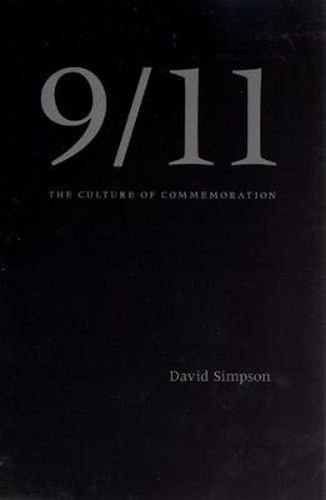Readings Newsletter
Become a Readings Member to make your shopping experience even easier.
Sign in or sign up for free!
You’re not far away from qualifying for FREE standard shipping within Australia
You’ve qualified for FREE standard shipping within Australia
The cart is loading…






After the terrorist attacks of September 11, 2001, a general\nsense that the world was different—that nothing would ever be the\nsame—settled upon a grieving nation; the events of that day were\nreceived as cataclysmic disruptions of an ordered world. Refuting\nthis claim, David Simpson examines the complex and paradoxical\ncharacter of American public discourse since that September\nmorning, considering the ways the event has been aestheticized,\nexploited, and appropriated, while “Ground Zero” remains the\ncontested site of an effort at adequate commemoration.
\n
\nIn_9/11,Simpson argues that elements of the conventional\nculture of mourning and remembrance—grieving the dead, summarizing\ntheir lives in obituaries, and erecting monuments in their\nmemory—have been co-opted for political advantage. He also\nconfronts those who labeled the event an “apocalypse,” condemning\ntheir exploitation of 9/11 for the defense of torture and\nwar. ; the debates over the rebuilding of the World Trade\nCenter towers and the memorial design; the representation of\nAmerican and Iraqi dead after the invasion of March 2003, along\nwith the worldwide circulation of the Abu Ghraib torture\nphotographs; and the urgent and largely ignored critique of\nhomeland rhetoric from the domain of critical theory.
\n
\nCalling for a sustained cultural and theoretical\nanalysis,_9/11_is the first book of its kind to consider the\nevents of that tragic day with a perspective so firmly grounded in\nthe humanities and so persuasive about the contribution they can\nmake to our understanding of its consequences.\n\n
$9.00 standard shipping within Australia
FREE standard shipping within Australia for orders over $100.00
Express & International shipping calculated at checkout
After the terrorist attacks of September 11, 2001, a general\nsense that the world was different—that nothing would ever be the\nsame—settled upon a grieving nation; the events of that day were\nreceived as cataclysmic disruptions of an ordered world. Refuting\nthis claim, David Simpson examines the complex and paradoxical\ncharacter of American public discourse since that September\nmorning, considering the ways the event has been aestheticized,\nexploited, and appropriated, while “Ground Zero” remains the\ncontested site of an effort at adequate commemoration.
\n
\nIn_9/11,Simpson argues that elements of the conventional\nculture of mourning and remembrance—grieving the dead, summarizing\ntheir lives in obituaries, and erecting monuments in their\nmemory—have been co-opted for political advantage. He also\nconfronts those who labeled the event an “apocalypse,” condemning\ntheir exploitation of 9/11 for the defense of torture and\nwar. ; the debates over the rebuilding of the World Trade\nCenter towers and the memorial design; the representation of\nAmerican and Iraqi dead after the invasion of March 2003, along\nwith the worldwide circulation of the Abu Ghraib torture\nphotographs; and the urgent and largely ignored critique of\nhomeland rhetoric from the domain of critical theory.
\n
\nCalling for a sustained cultural and theoretical\nanalysis,_9/11_is the first book of its kind to consider the\nevents of that tragic day with a perspective so firmly grounded in\nthe humanities and so persuasive about the contribution they can\nmake to our understanding of its consequences.\n\n